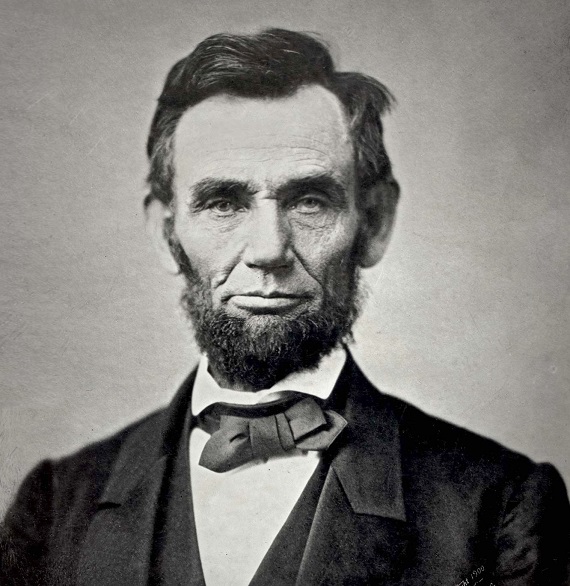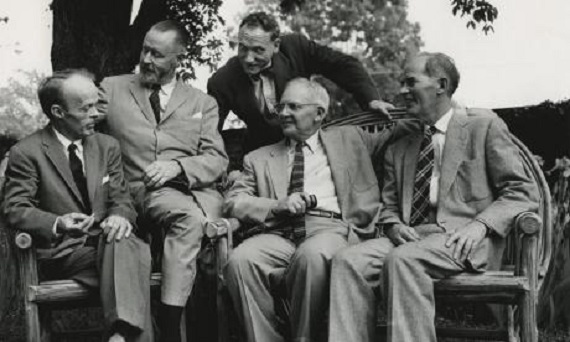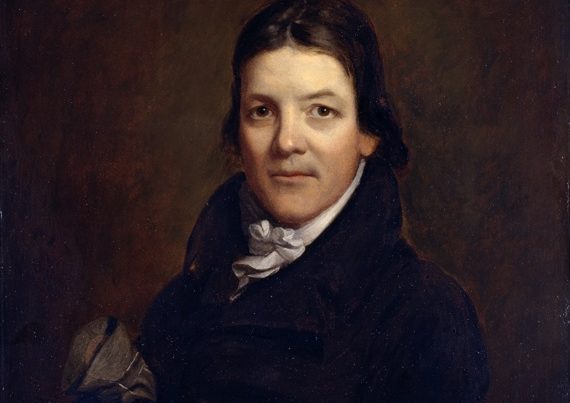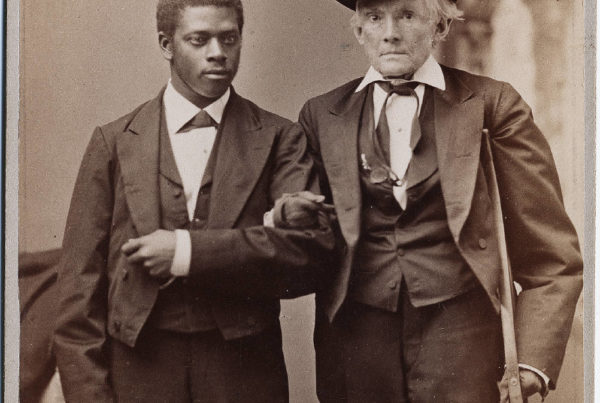Professor Thomas DiLorenzo’s The Real Lincoln has provoked the utterly predictable torrent of abuse from state worshipers and self-appointed prophets of The True American Way. All DiLorenzo has done (and this does not in the least detract from his courage, eloquence, and insight) is to analyze Honest Abe as a historical figure just like any other, rather than treat him as a saint. Professor DiLorenzo does not need any defense. He, along with Professor Joseph Stromberg and others, has exposed the ignorance and fanaticism of the critics to the satisfaction of any reasoning human. However, something more can be said about the Lincolnites, especially their egregious abuse and distortion of the nature and purposes of historical understanding.
One devotee of Lincoln hagiography, Professor Mackubin Thomas Owens, dismisses The Real Lincoln with the announcement that we need pay it no mind – its ideas were refuted fifty years ago by Professor Harry Jaffa. How comforting to know that the proper interpretation of the largest and most portentous event in American history, the War between the States, has already been settled! We don’t have to tire ourselves out any more examining evidence and thinking about the meaning of events!
However, I must demur at giving Jaffa the honors of discovering this forever valid truth. This wisdom was first given to us 125 years ago (1876) by Hermann E. von Holst in his eight volume History of the United States.
Holst was an imported Prussian, ensconced, appropriately enough, in Rockefeller’s University of Chicago. His view of the American founding and its alleged salvation by Lincoln anticipated Jaffa on almost every point.
Of course, like the Jaffaites, Holst knew absolutely nothing about American history before Lincoln, to which he devoted only a small portion of one volume. He knew nothing about English and American constitutional evolution, about the historical experience and ideas of the American people. What he did know was that the unitary state was righteous and inevitable. It was easy for him to proclaim that the great war of 1861–1865, the most violent and complex experience of the United States, was the necessary cleansing from the Americcan state of slavery and its defenders. Not because slavery violated equality but because it was a contradiction in the way of the perfection of the central state. Any resistance to the state could only be motivated by an evil like slavery, which he treated not as an analyzable human institution or a political issue but as a reified Hegelian antithesis. And his convenient ignorance of actual American history allowed him to dismiss states rights as a fiction, a made-up rationalization in defense of evil.
Professor Jaffa has been free in throwing out hints that opponents of his view are tainted with Nazism. In fact, it is more reasonable to argue that his views have their remote origins in the same state worship as Nazism. Except that the Straussians, who pose as defenders of democracy while appointing themselves as the “wise men” who are empowered to tell the rest of us rubes what everything really means, are guilty of an elitism that is more cynical than that of 20th century totalitarian movements, which at least claimed to believe in the people.
What is revealed by DiLorenzo’s attackers is their pathetically impoverished idea of the nature and uses of historical knowledge. It is, in fact, a rejection of the historical consciousness that John Lukacs has defined, rightly, as the hallmark of Western civilization.
What Professor Owens calls for is the end of the search for historical understanding. The eternal true understanding has already been achieved by his saint! It is fixed forever.
Thus, one does not have to search among the records of human acts and experience to find understanding. Professor Jaffa’s mystical contemplation of a few of Lincoln’s prettier speeches establishes all we need to know! We are to terminate our search for understanding of the immense and complex past of our species on this planet and defer to our betters. This is not only anti-intellectual. It is also a rejection of democracy, which is supposed to be exercised by free thought and deliberation. It is also, of course, atheist since it rejects the essential mystery of human existence and limitations of human knowledge.
To any serious historian of any breed, Professor Owens’s position is laughable. Historians are by definition aware that historical knowledge is never complete and conclusive, that there is always more to be found out and always more than one way to look at things. I have always thought that the most important aspect of history was that it can teach us to see that there is usually more than one side of a question, that sweeping claims to final truth are deceptive, that moral judgments should be made after, not before, examining the evidence. Thus we are made better, more savvy and less credulous citizens.
No serious historian of the War between the States pays much attention to Jaffa or his works. The prevailing interpretation now, which has changed before and will change again (unless the neocons are able to suppress all unofficial thought) is that Lincoln carried out a revolution not a salvation, a refounding not a preservation. One may like or dislike the revolution (most historians today like it), but there it is.
The Straussians, for whom the Jaffaites are the commandos, are tireless networkers and noisy disputants. They do most of their work on the “conservative” side of American discourse, which itself constitutes a tiny minority. They are loud frogs in a small pond, and those of us on the “conservative” side tend to over-estimate their importance. Most historians know Jaffa only from Crisis Of The House Divided which they vaguely remember from a graduate school reading list decades ago. Political philosophers are perhaps more aware of them, but it is my impression that most are either indifferent or hostile to the Straussian message and resentful of their ruthless networking and authoritarian style of argument.
Texts such as speeches of leading men and constitutional documents, are important but they don’t constitute all of history. History consists of all human actions, to which texts are only one guide. By reference to a few lines of a select few of Lincoln’s speeches, Professor DiLorenzo’s critics want to settle forever understanding of the War between the States which is the largest event in American experience in scale, casualties, and revolutionary impact.
How convenient when one can select the few documents out of thousands that contain the truth to be discerned by the elect! So Jaffa has been fond of comparing Lincoln’s paean to equality with a speech of Alexander Stephens, who became Vice-President of the Confederacy, as the defining text of the struggle of the Southern people for independence. Stephens is said to have declared that inequality, i.e., white supremacy, was the “cornerstone” of the Confederacy.
Set aside that this speech was an unofficial oration on the hustings and that the accuracy of the text is disputed and that Stephens was in several respects an eccentric figure. At face value this tells us that Stephens was a white supremacist. So what. Though Lincoln never made white supremacy a “cornerstone”; he, like 98 per cent of his voters (including most of the sincere antislavery people) and most Americans of several succeeding generations, was also a white supremacist. In fact, in one of the two forthrightly truthful statements in his public career, Lincoln remarked that “the Southern people are exactly what we would be in their situation.”
And why does this particular document sum up the whole of the case for the Confederacy? Why can’t I, who actually know a fair amount about the context, make another selection. Something much more central and comparable to Lincoln’s speeches on critical occasions. How about Jefferson Davis’s first inaugural, in which he declared to the world: “Our present condition, achieved in a manner unprecedented in the history of nations, illustrates the American idea that governments rest upon the consent of the governed, and that it is the right of the people to alter or abolish governments whenever they become destructive of the ends for which they were established.”
Or given my unfortunate limitations as a mere historian and not a seer, I might point to a sermon preached by the Revered James Henley Thornwell of South Carolina, one of the most respected churchmen in the South and a strong secessionist, upon the founding of the Confederate States. The Rev. Thornwell outlined and recommended as a necessary task a course of action that would lead to the eventual peaceful end of slavery.
It is a lot easier to win an argument when you are able to state your opponent’s case for him, which is the stock-in-trade of Straussian discourse.
An entirely different kind of criticism comes from Professor Tibor Machan in his “Lincoln, Secession, and Slavery,” a criticism that deserves respectful consideration. As I understand it, Machan is interested in laying down a rationale for the right of secession. This is a worthy endeavor which needs much more work. I would recommend to him the writings of Professor Donald Livingston on this subject in various Mises Institute publications and elsewhere, and in a forthcoming book.
His position is that the right of secession is generally valid, but does not hold when the secessionists take with them “hostages,” in which category Professor Machan places the slaves of the Southern states. Therefore the secession of the Southern states was not morally valid, and Lincoln was justified in refusing to allow it.
At the time when Lincoln inaugurated coercion against the seven seceding Southern states, there were (rounding off 1860 census figures) 1,387,000 slaves in the seceded states and 1,817,000 (or over 56 per cent of the total American slave population) still in the Union, including nearly 3,700 in the District of Columbia and 18 in New Jersey. It is hard to draw much of a moral to support military conquest of seceding states from that, especially as Lincoln had already declared that he had neither the right nor to desire to interfere with slavery in the states.
And what about the 488,000 free black people in the United States, more than half of whom were in the slave states. How can they be “hostages” when they discouraged and often forbidden from entering Northern states where the black population was, according to much testimony, extremely depressed and oppressed!
Professor Machan is not alone in working to clarify the condition upon which secession of a portion of a people from a larger state is justified. The subject has received a good deal of attention in recent years. Let me state what I perceive to be a fatal flaw in Professor Machan’s position and those of some other libertarian thinkers.
For them secession must meet certain pre-established moral criteria to be justified. But who, in fact, judges the criteria? If I have a right to secede only when you have determined that my motives are morally valid, Then I Have No Right At All. I must be the judge of my claim to self-government. Otherwise, of course, the central power will always conclude that my motives are not sufficiently moral. And the fact that there are “hostages” in my territory, if allowed to impede secession, would invalidate almost every independence movement in history, including the American Revolution, since almost every territory has antisecessionists or a minority ethnic group.
The right of secession is a technical form of the right to self-government, which is its own justification. Nobody put it better than Lincoln in his other true statement (1848): “Any people anywhere, being inclined and having the power, have the right to rise up and shake off the existing government and form a new one that suits them better. This is a most valuable, a most sacred right – a right which we hope and believe is to liberate the world.”
June 18, 2002
Copyright © 2002 LewRockwell.com. Reprinted by permission.







